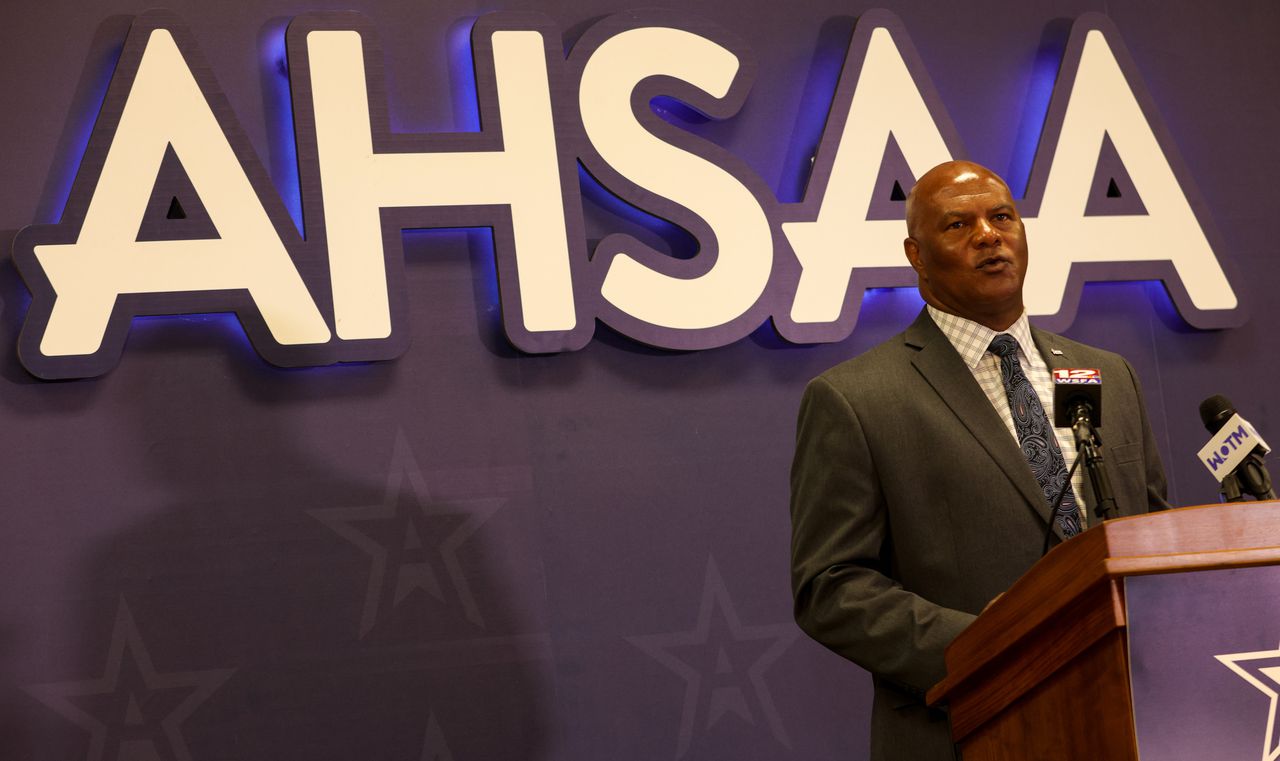AHSAA executive director addresses NIL in HS sports
Alabama High School Athletic Association executive director Alvin Briggs emphasized Tuesday morning that the association’s amateur rule prohibits pay-for-play.
The rule – as AHSAA Communications Director Ron Ingram pointed out – has been in place since 1929.
“Remember, to be an amateur, you can’t take any kind of funds that has anything to do with you playing in a contest,” Briggs said in response to a question in a roundtable discussion during AHSAA Media Day at the association’s headquarters in Montgomery. “Even at the next level, they’re not supposed to make any money for playing.”
NIL – or Name, Image and Likeness – has become a major buzzword in athletic circles since the NCAA authorized players to enter business partnerships based on their celebrity status without without losing eligibility. The NCAA decision came in response to a 2021 Supreme Court decision.
Since 2021, many major college programs, including Alabama and Auburn, have set up private organizations, known as collectives, designed to raise money and compensate athletes based on the NIL rules.
Some high school associations, including California and Tennessee, have passed laws allowing high school athletes to capitalize in a similar way as college players.
In Alabama, though, the AHSAA’s long-standing amateur rule remains in effect. As an example, Briggs said a player can’t be paid for scoring a touchdown or recovering a fumble on Friday night.
“We have never told anybody that they couldn’t go work for someone,” he said.” We don’t tell a kid he can’t go to work.”
Here’s the AHSAA’s current amateur rule, found in the AHSAA website:
“SECTION 8. AMATEUR RULE. Only amateurs are eligible. An amateur is one who does not use his/her knowledge of athletics or athletic skill for gain. Amateur standing shall be further determined by the following standards:
(a) A student is ineligible if he/she has received money as a prize, or has sold a prize received in a contest, or has bet on a contest in which he/ she is a participant.
(b) Professionalism is defined as accepting remuneration, directly or indirectly, for playing on athletic teams and in sports activities or for playing under an assumed name.
(c) A student who accepts material or financial inducement from any Bylaws – Eligibility 29 source is ineligible.
(d) No student shall receive more than actual expenses involved in travel to and from a contest or camp and necessary meals and lodging in the meantime.
A student shall not at any time receive any portion of a livelihood for participation in athletics, other than actual expenses for any specific game or camp.
1. A student cannot accept payment for loss of time or wages while participating in athletics as part of expenses.
2. Reasonable meals, lodging and transportation may be accepted if such are accepted in service rather than money or some material form.
3. Students playing on a non-home team which requires boarding away from home by the week, etc., will be looked upon as violating the professional rule if board is not paid by his family.
4. A team which plans to divide among its members any surplus either during or at close of season shall be considered a professional team.
(e) No award of any kind having a monetary value of more than 250 dollars — other than medals, trophies, plaques or AHSAA championship rings — shall be made to students. Violation of this rule on the part of school officials shall subject the school to suspension for one year. Acceptance of awards exceeding these limitations shall disqualify a student. Cash awards or gift cards for athletic performances or participation may not be given or received.
(f) A student who has lost his/her amateur standing may be reinstated after the lapse of one high school season, or until reinstated by the Central Board of Control, for the sport in which he/she has become professional provided he/she has not persisted in breaking the amateur rule.”
Briggs said most AHSAA schools know and understand the rule, although he acknowledged some schools ask for clarifications.
“In reality, all it is amateurism,” he said.
